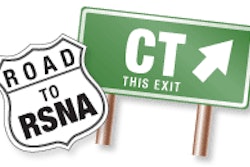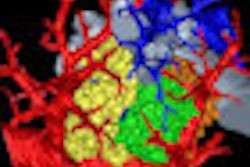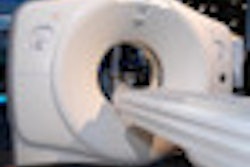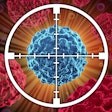Tuesday, November 27 | 11:25 a.m.-11:35 a.m. | VSCH31-14 | Room N230
Perfusion CT is more effective than Response Evaluation Criteria in Solid Tumors (RECIST) for evaluating the effectiveness of short-term antiangiogenic chemotherapy for non-small cell lung cancer (NSCLC), according to a group from Calmette Hospital and the University of Lille in France."Among the new options developed for the treatment of advanced non-small cell lung carcinoma, there has been a growing interest in antiangiogenic drugs which act through vessel regression and vascular normalization," noted Dr. Nunzia Tacelli. "Several imaging techniques have been shown to provide assessment of tumor microcirculation, such as MRI and FDG-PET. However, MDCT is more widely available and represents a cornerstone in thoracic oncology," enabling whole-tumor analysis.
The study examined whether perfusion CT could identify specific changes in tumor vascularity in patients receiving antiangiogenic drugs along with chemotherapy, and whether perfusion changes could predict treatment response based on RECIST criteria and the overall clinical evaluation.
The treated group saw significant differences in tumor blood volume and capillary permeability indexed to tumor volume, the group found.
"This new approach could be a crucial noninvasive tool, helping to monitor specifically antiangiogenic treatment in NSCLC patients eligible for this class of drugs," Tacelli said. "An in vivo marker of angiogenesis obtained through noninvasive imaging could provide predictive and prognostic parameters in patients with lung cancer and help monitor chemotherapy, with the objective of avoiding pointless therapies and their potential adverse events as well as cost savings."




















